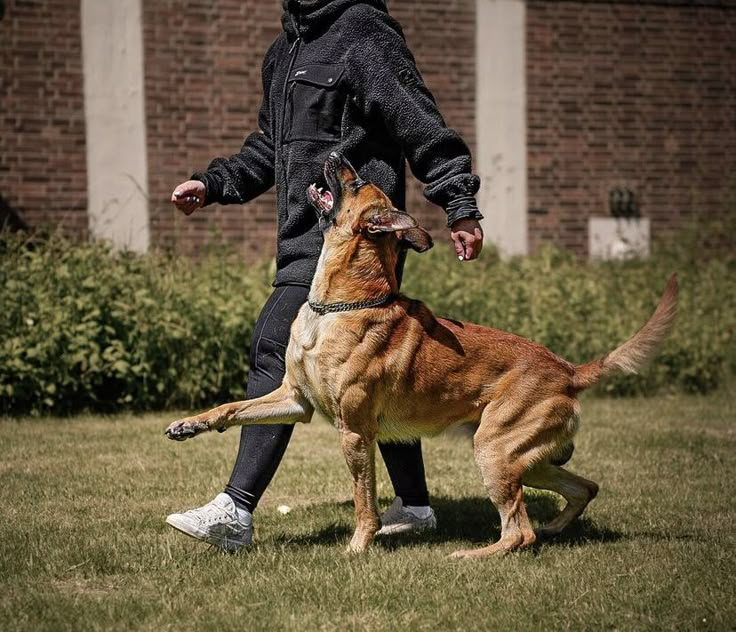Los Angeles is a city brimming with dog lovers, and consequently, a vast array of dog training services. From basic obedience classes to specialized behavioral modification, the options can be overwhelming. Choosing the right trainer is a critical decision that impacts your dog’s well-being, behavior, and your relationship with them. A thorough review process is essential to ensure you find a qualified, ethical, and effective professional dog training services Los Angeles.
Define Your Needs First
Before you even begin reviewing, take a moment to assess your dog’s specific needs and your training goals. Are you looking for:
- Puppy Socialization and Basic Manners?
- Adolescent Obedience and Impulse Control?
- Addressing Specific Behavioral Issues (e.g., reactivity, aggression, separation anxiety, excessive barking)?
- Advanced Training (e.g., trick training, agility, service dog work)?
- Group Classes or Private Sessions?
Having a clear idea of what you need will help you narrow down your search significantly.
Where to Begin Your Research
Start by gathering a list of potential trainers or facilities. Good sources include:
- Veterinarian Referrals: Your vet often has trusted recommendations.
- Word-of-Mouth: Ask friends, family, or local dog park regulars for their experiences.
- Online Searches: Use terms like “dog training Los Angeles,” “positive reinforcement dog trainer LA,” or “puppy classes Los Angeles.”
- Professional Organizations: Websites like the Certification Council for Professional Dog Trainers (CCPDT) or the Association of Professional Dog Trainers (APDT) can help you find certified trainers in your area.
Key Factors to Evaluate
Once you have a list, delve into a detailed review of each candidate:
1. Training Philosophy and Methods
This is perhaps the most crucial factor. Look for trainers who exclusively use positive reinforcement, force-free, and reward-based methods. This means they focus on rewarding desired behaviors rather than punishing unwanted ones. Avoid trainers who advocate or use:
- Aversive tools: Prong collars, choke chains, e-collars (shock collars).
- Punishment-based techniques: Yelling, alpha rolls, physical corrections, intimidation.
- Outdated “dominance theory” concepts.
A good trainer should explain their methods clearly and be able to articulate why they use them.
2. Certifications and Experience
While not strictly required by law, professional certifications demonstrate a trainer’s commitment to their craft and adherence to industry standards. Look for:
- CPDT-KA (Certified Professional Dog Trainer – Knowledge Assessed): Indicates a trainer has passed a rigorous exam on dog training knowledge.
- KPA CTP (Karen Pryor Academy Certified Training Partner): Signifies extensive hands-on training and a deep understanding of clicker training and positive reinforcement.
- CDBC (Certified Dog Behavior Consultant) or CAAB (Certified Applied Animal Behaviorist): For more complex behavioral issues, these certifications indicate advanced expertise.
Also, inquire about their years of experience, especially with cases similar to yours.
3. Specializations
Some trainers excel in specific areas. If you have a puppy, look for someone specializing in puppy development and socialization. If your dog has aggression issues, seek a behavior consultant with a strong background in managing and rehabilitating aggressive dogs.
4. Client Testimonials and Reviews
Read online reviews on platforms like Google, Yelp, or social media. Look for consistent themes in positive feedback. Don’t hesitate to ask the trainer for references from past clients whom you can contact directly. Pay attention to how long the results lasted for previous clients.
5. Communication and Transparency
A good trainer should be an excellent communicator, not just with dogs, but with their human clients. They should:
- Explain concepts clearly and patiently.
- Be transparent about their methods, pricing, and what to expect.
- Be responsive to your questions and concerns.
- Empower you to be part of the training process, as you are the one living with your dog daily.
6. Class Size and Personalization (for group classes)
If considering group classes, ask about the student-to-instructor ratio. Smaller classes often allow for more individual attention. For private sessions, ensure the trainer is willing to tailor the program to your dog’s unique personality and your family’s lifestyle.
7. Cost and Value
Training is an investment. While price is a factor, it shouldn’t be the sole determinant. Compare what’s included in the package (number of sessions, support materials, follow-up) and weigh it against the trainer’s expertise and reputation. Be wary of trainers who promise instant fixes or extremely low prices that seem too good to be true.
Questions to Ask During a Consultation
Before committing, schedule a consultation (many offer free initial calls). Ask questions like:
- “What is your training philosophy?”
- “What methods and tools do you use, and why?”
- “How do you handle unwanted behaviors?”
- “What are your certifications and how long have you been training?”
- “Can you provide references?”
- “What does a typical session look like?”
- “How do you measure success?”
Red Flags to Watch Out For
- Guarantees: No reputable trainer can guarantee results, as dog training involves living beings with individual personalities and variables.
- “Alpha” or “Dominance” Language: These theories are largely debunked and often lead to confrontational and damaging training methods.
- Refusal to Explain Methods: A good trainer is open and transparent.
- Immediate Use of Aversive Tools: If a trainer suggests a shock collar or prong collar without first exploring positive reinforcement options, proceed with caution.
- Focus on Punishment over Teaching: Training should be about teaching your dog what to do, not just punishing what not to do.
Conclusion
Effectively reviewing dog training services in Los Angeles requires diligence and an understanding of modern, humane training practices. By focusing on positive reinforcement, checking credentials, seeking transparent communication, and asking the right questions, you can confidently select a trainer who will help your dog thrive and strengthen the incredible bond you share.

